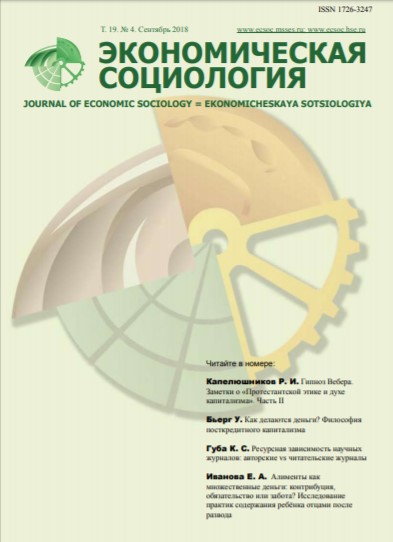Resource Dependence Theory Applied to the Population of Academic Journals
Abstract
The article presents a typology of academic journals based on the difference in the sources of resource dependence. Academic journals are divided into journals existing at the expense of the authors who need publications primarily for academic promotion, and journals for which communication is essential, so they depend on the number of subscriptions. Besides we take into account how researchers connect with a journal—they can have a direct link with a journal by payment (authors in the form of a fee for publication, readers in the form of a subscription) or instead use a corporate agent like an association or a university representing their interests. Typology explains different aspects of academic journals; such as an explicit link to an educational organization, thematic focus, concentration of authors and readers, and quality of articles. The theoretical scheme is applied to journals of Russian sociology. We found two types of career journals. The first type is a corporate journal with an explicit link to an organization. The lion's share of universities create these journals to provide their staff with a guaranteed place for publication. Corporate journals publish almost any article submitted by the authors who are related to the university, which, in turn, finances the journal. The second type is pay-to-publish journals which are open for almost everyone who pays for the article. The wide-spread availability of these types coincided with the publication pressure in Russian academia. New rules for research assessment have changed the demand for journals and have made it possible to launch numerous private journals which hardly contain any peer review. Only in several institutions do authors have strong incentives to publish articles in the journals which are more selective than others. By their very nature, the closest to the journals with a strong communication function are thematic journals with an absence of an explicit link to an organization. Data shows that these journals publish fewer articles; they can be embedded around one organization, but will receive citation attention from different organizations. Higher citation metrics and better articles also distinguish them.













